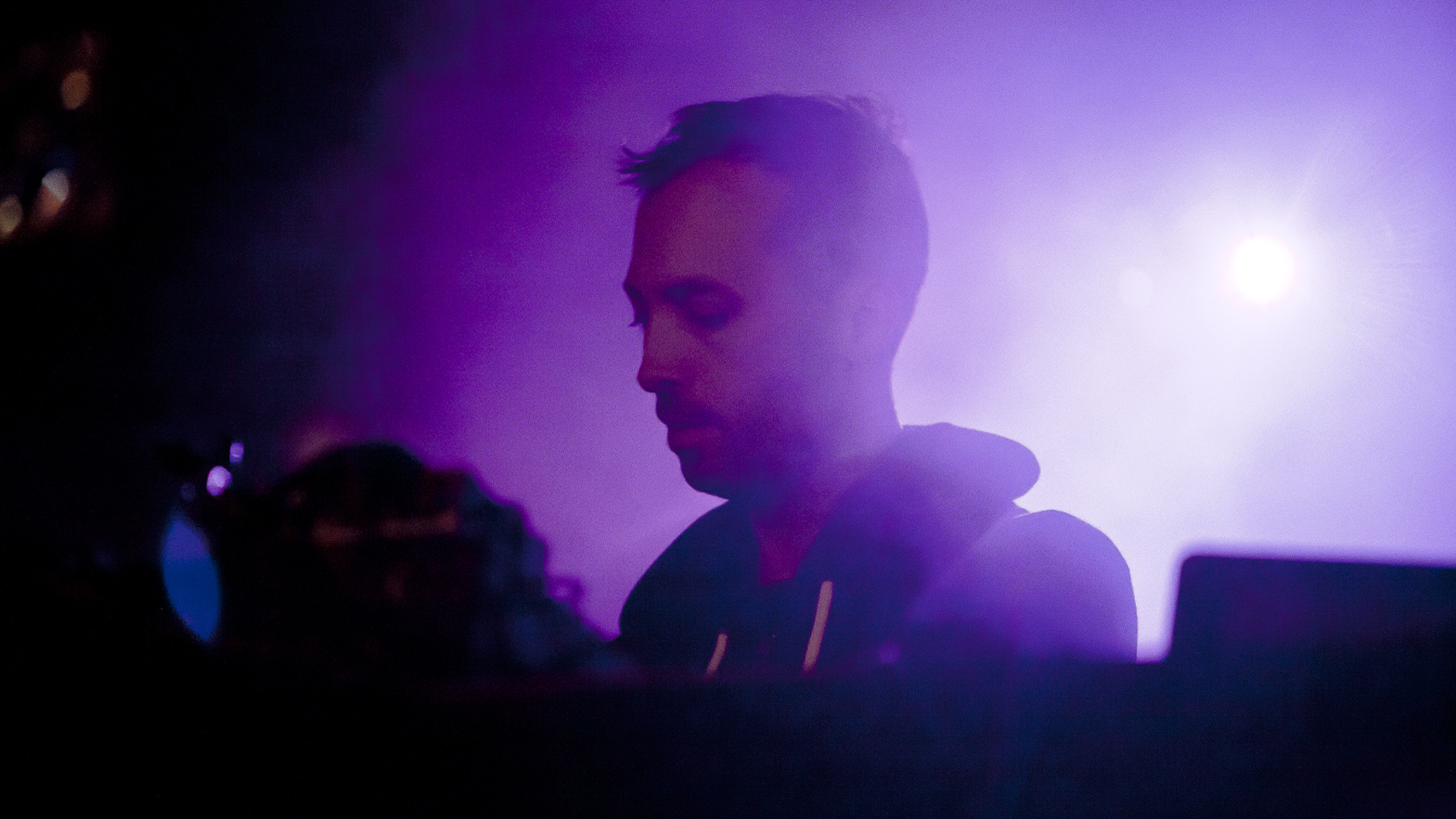Tim Hecker
June 13, 2015
Metro
Chicago, Illinois
Tim Hecker’s compositions are tactile, all grayscale frictions rubbing against one another in a calculated cacophony. Virgins, his exhausting 2013 opus, is the sound of light and goodness struggling to be born and retain its footing in a sonic world utterly opposed to any level or variety of sweetness. This kind of sound—abstract in the extreme—is difficult to comprehend through headphones. But live, with the perfect power to control the volume and intensity of his music, Hecker plays at frequencies that banish thought.
In the kinds of small spaces he typically plays—think black-box theaters—the thrill of hearing Hecker live comes in handing over control and seeing what he does with it; one friend, lying on the floor of a church basement in Montreal, claimed to have seen visions. Chicago’s venerated rock club Metro, where Hecker opened for Wire as part of the DRILL Festival on Saturday night, isn’t exactly the ideal venue for this kind of performance. Even with the incredible volume—and I mean “incredible” in the sense that it’s hard to believe just how loud this music is—it’s difficult to be totally immersed in a space not designed for immersion.
Which is not to say it’s impossible. Though heavy, sustained bass is at the center of Hecker’s sound, the frequencies don’t hit you in the stomach. You feel it in your ribs and veins and temples. It’s a physical manifestation of the music’s thematic concerns: it’s designed to make you feel, but not to get you moving. With the oppressive, constantly shifting hum of the bass taking complete control, even the moments of relief feel nauseating. A few piano lines lifted from Virgins’ “Virginal I” might scatter through, but they seem to expire the moment that they’re born. It feels like a taunt.
But sometimes they end up staying. In a moment of sublime coincidence late in the set, a massive wind from Metro’s fans suddenly blows through the room right as Hecker sets off a thousand or so simultaneous windchimes. He draws the bass down, shapes it into a sphere, and gently bounces it against the twinkles of treble. The formerly oppressive force rolls through the room with a shudder, and it’s odd and comforting, even maternal. It’s what we ride out on.







